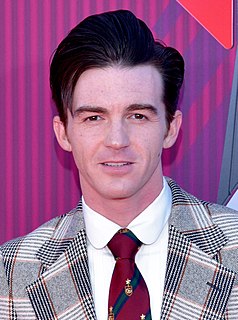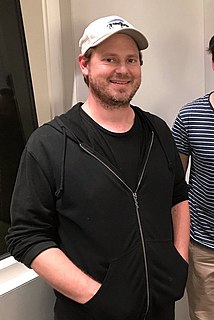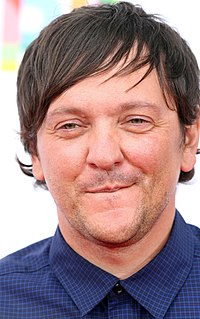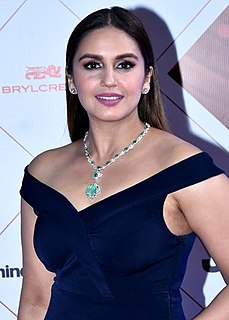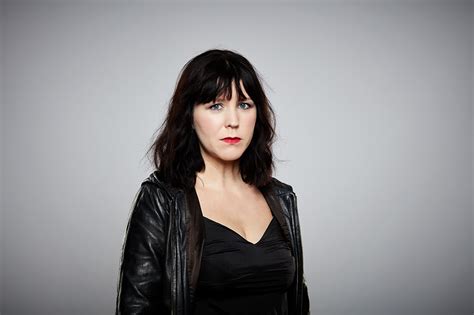A Quote by John Hodgman
One of the things about crowd work that's so exciting is when you discover a character in the audience who's interesting or funny, who you can vibe off of. If someone's got a weird job that you can make reference to throughout, or you can bring that person onstage - humiliate them, or celebrate them! You can put people in conversation with one another. The best is when something that they're doing can reflect back on something that you're doing.
Related Quotes
The live audience, just getting an instant reaction off of an audience is the best part[of the show]. Being in the studio and working on your songs and listening to them back and doing all that - it's a lot of fun, but having that instant reaction and being able to work and vibe with an audience is the best part.
Incidentally, part of a photographer’s gift should be with people. You can do some wonderful work if you know how to make people understand what you’re doing and feel all right about it, and you can do terrible work if you put them on the defense, which they all are at the beginning. You’ve got to take them off their defensive attitude and make them participate.
It takes a number of different skill sets, I think, to try and be a good producer. You have to be very creative, but you also have to be incredibly financially minded. I jokingly say the job is kind of part cheerleader and part dictator. It is both of those things, because you have to make sure that people are doing what they need to be doing, but creatively you really need to be helping each person in every job across the crew. Cheering them on, keeping them inspired into doing their best work, and you have the director's vision in the forefront.
The thing that struck me is so many people that said, "Hey, I've been watching you since I was 12, and I'm 25 now." It was a weird shift, because you start off fighting for an audience based on doing something so strange that only you find funny, and it's weird when other people find it funny. Those people aren't always ready to laugh yet, and there's a sort of standoffish quality to it.
I started doing comedy just as myself, because I thought, "This is what's expected, you're meant to tell stories and do observations." And then I started to realize that I wanted to mix it up a bit, so I started to doing songs, and I had a little keyboard onstage and would bring in little props. Then I thought about the idea of talking about a character and becoming the character onstage. So, it sort of morphed into being stand-up that was more character based, and I found that's the stuff I got the better reaction from and was more exciting for me.
Kind of the exhausting thing about doing pure comedy, or something that's broader, is you're kind of a slave to the laugh. If it's not funny, then there's not much point in doing it. The kind of ueber-objective is to make people laugh. You always have to have that in the back of your mind, 'Eh, I've got to figure out a way to make this funny.'
Kind of the exhausting thing about doing pure comedy, or something that's broader, is you're kind of a slave to the laugh. If it's not funny, then there's not much point in doing it. The kind of über-objective is to make people laugh. You always have to have that in the back of your mind, "Eh, I've got to figure out a way to make this funny."
I came upon whatever I'm doing organically. I didn't study anything. I don't have any real aspirations other than to connect with somebody, and to have the conversation be genuine. That's the best that can happen. Even if it only happens for 10 minutes in an episode. But I think what people forget is that you don't have to try to get a comedian to be funny. Comedians are innately funny. That the real challenge of talking to them is to get them talking about real things and then see where they need to be funny. And let them do that on their own volition.
I think of the medium as a people-to-people medium, not cameraman-to-people, not direction-to-people, not writers-to-people, but people-to-peopleYou can only involve an audience with people. You can't involve them with gimmicks, with sunsets, with hand-held cameras, zoom shots, or anything else. They couldn't care less about those things. But you give them something to worry about, some person they can worry about, and care about, and you've got them, you've got them involved.
You're in a movie, so you have to think about how something plays. It's not like you're thinking about how an audience is going to react. You're trying to present the story. You're trying to illuminate the lives of these people in the story. So I'm thinking about how my behavior as this character best illuminates what's going on with them in this moment in time. I always say it's sort of the director's job. People think that the directors direct actors. No. Really, what the director's doing is directing the audience's eye through the film.
I have become a giant fan of the testing process, especially with a comedy. I mean, they tell you what's funny. It's almost tailor-made for people who shoot the way we shoot, trying a million different options and versions of things. Because the audience doesn't laugh at a joke, we put in another joke. If they don't laugh at the next joke, we put in another joke. You just keep doing them and you can get the movie to the point where every joke is funny, if you have enough options in the can.

